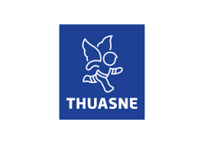Developing Research
on Family-Owned Companies and their Dynamics
At all levels - global, European, and French - family businesses represent a significant portion of the economy in terms of numbers and business share. They contribute 70% of the world’s GDP and generate between 50% and 80% of jobs in many countries, making them a vital component of economic activity that cannot be overlooked.
What are the performance, strategies, economic and social models of these companies?Are they equipped to meet the challenges of ongoing digital and environmental transitions?
These are the questions that the new “Family Business and Long-Term Investment” Chair at the University Paris Dauphine - PSL aims to address.
A pool of stakeholders in the family business environment are invited to take part in the Chair's various activities, to provide input, share their expertise and contribute to its work.
The Family Business Chair aims to foster the emergence of an ecosystem involving researchers from the University Paris Dauphine - PSL, along with their national and international network, to develop research on family-owned companies and their dynamics, and to highlight their importance to all stakeholders. This Chair is affiliated with the Dauphine Research Management Laboratory (DRM) and the Dauphine Economics Laboratory (LEDA) of the University.

What defines a family business?
A company is defined as a family business when a family holds a significant share of its voting rights.
The family’s involvement in the company's governance may or may not be a factor.
According to the European Commission, an unlisted company is considered a family business if the family directly or indirectly owns a majority of the voting rights and if at least one family member is engaged in governance. However, for a listed company, an exception applies, considering it a family business if the family holds 25% of the voting rights.
The Chair's work refers to a definition of a family-owned company based on the majority ownership of voting rights for unlisted companies, with the threshold lowered to 25% for listed companies. However, additional tests will also be conducted, by adding requirements for family members' involvement in governance, or by lowering the ownership threshold to 30 or 40% of voting rights, for example, when the family is involved in governance.
“Family-owned companies constitute the majority of companies in France, yet they remain relatively under-researched.”
Four lines of research
The objective of the Chair is to measure the economic significance of family-owned enterprises in France compared to neighboring countries, and to study their dynamics and constraints: growth, internationalization, technological choices, innovation, territorial footprints, resilience, as well as legal and fiscal aspects.
Four principal lines of work emerge:
- The majority of companies are family-owned but are often less studied.
- Shareholders have a long-term vision for the company's development, with transmission to heirs and multiple successions across generations.
- The effect of reputation and anchoring is more significant for these companies compared to others due to the identification of the company with the family group, from which the CEO often originates.
- It's crucial to inform policymakers, banks, and investors about the significance of family businesses for economic activity, growth, innovation, exports, etc.

Research area
- Performance and dynamism of family businesses: Job creation, increased sales, productivity measurements.
- Resilience of family businesses against shocks: Capacity to adapt to economic, environmental, or health crises.
- Offshoring/reshoring of production activities, methods of entering foreign markets.
- Innovation models: Innovative products and services, investment in digital technologies.
- Extra-financial performance: Social, environmental, and societal impacts of family businesses.
- Uncertain environment: Legal and tax analysis of the family business environment.
- Financing the growth of family businesses: Access to banking financing, inter-company financing.









